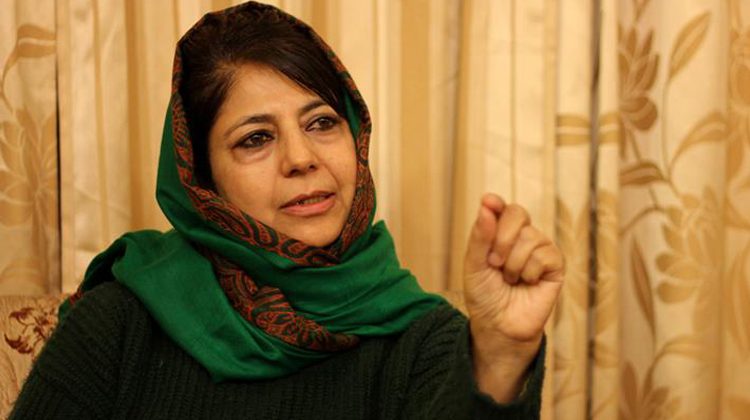Srinagar: As the electoral battle intensifies in Jammu and Kashmir, former Chief Minister Mehbooba Mufti has stirred controversy with her assertion that the People’s Democratic Party (PDP) will be the “kingmaker” in the region. Speaking at a rally, she declared that no secular government could be formed without the PDP’s support, raising significant questions about her party’s influence in the current political landscape.
Mufti’s comments came after the first phase of voting, where she asserted that the PDP would emerge as the largest party in south Kashmir, claiming that the party cannot be overlooked. She expressed concern over the alliance between Congress and the National Conference, recalling past violence in Kashmir whenever these parties joined forces, notably in 1987 and 2008.
In the first phase of elections, voting occurred for 24 out of 90 assembly seats, with 66 seats remaining. The Election Commission has scheduled further voting on September 25 for 26 seats and October 1 for 40 seats, with results to be announced on October 8. To form a government in the Valley, a party needs at least 46 seats.
Critics are questioning why Mufti has positioned herself as a kingmaker in a climate where major parties typically assert their own government formation. Since 2018, the PDP has faced political isolation, and many believe that Mehbooba Mufti bears significant responsibility for the current situation in Kashmir. The Bharatiya Janata Party (BJP) appears to be consolidating its influence in Jammu, seemingly unaffected by the PDP’s claims.
Despite these challenges, the PDP is optimistic following a reported 59 percent voter turnout in the first phase. The party hopes to secure at least six seats, with key constituencies including Bijbehara, Pulwama, Devsar, and Shangus.
In the lead-up to the elections, Mehbooba has made a concerted effort to engage core voters, with her daughter Iltija stepping into the spotlight alongside prominent party leaders. The PDP aims to win 10 to 15 seats to maintain its political relevance and influence in the region.
As the electoral process unfolds, the dynamics between the PDP, BJP, Congress, and other regional parties will be closely watched, with the implications for Kashmir’s future hanging in the balance.



Comments are closed.